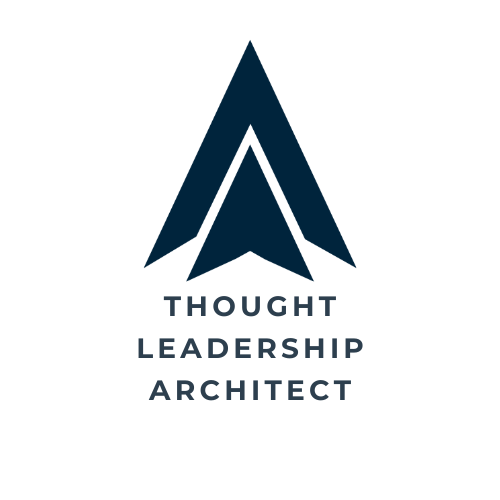For years, influencer marketing has been synonymous with high-profile social media stars promoting everything from skincare to software. But as consumers become more skeptical of sponsored content, a shift is happening—brands are turning to industry experts and thought leaders rather than traditional influencers to build credibility and trust.
According to a 2024 Edelman Trust Barometer report, 61% of consumers trust experts over celebrities when making purchasing decisions. This shift signals a new era of influencer marketing, where brands prioritize substance over superficial reach.
So why are companies shifting toward niche experts over mainstream influencers, and how can thought leaders capitalize on this trend? Let’s break it down.
As marketing strategist Jay Baer puts it:
“Trust is the currency of influence, and expertise is its foundation.”
Why Brands Are Choosing Industry Experts Over Traditional Influencers
1. Credibility Over Popularity
Traditional influencers monetize their lifestyle and personality, but industry experts monetize their knowledge and insights. As audiences crave authenticity, brands are realizing that subject matter experts offer deeper engagement than influencers who promote a different product every week.
✔ Experts bring real-world experience that resonates with niche audiences.
✔ Trust levels are higher—consumers know experts won’t endorse something they don’t believe in.
✔ Long-term impact—expert-driven campaigns have lasting educational value, while celebrity endorsements fade quickly.
📌 Example: Instead of hiring a beauty YouTuber for a skincare launch, L’Oréal partnered with dermatologists and cosmetic scientists to educate consumers on ingredients and skin health.
💡 Tip: If you’re a thought leader, now is the time to position yourself as a trusted voice brands want to work with.


2. Thought Leaders Drive Higher-Quality Engagement
Engagement is no longer just about likes and views—it’s about conversation and influence over decision-making. Experts attract smaller but highly engaged audiences who seek actionable advice, not just entertainment.
✔ Expert-driven content generates meaningful discussions.
✔ B2B and premium brands benefit from working with specialists, not generalists.
✔ Long-form content (webinars, LinkedIn posts, and whitepapers) resonates more than short Instagram captions.
📌 Example: Salesforce, a leader in CRM, collaborates with business consultants and tech thought leaders instead of lifestyle influencers. Their LinkedIn and YouTube content is packed with expert insights, making it more valuable for B2B decision-makers.
💡 Tip: Leverage platforms like LinkedIn, YouTube, and podcasts to share insightful, expert-driven content that brands will want to amplify.
Case Studies: Brands Prioritizing Expertise Over Follower Count
1. IBM & Industry-Specific Thought Leaders
IBM has shifted its influencer marketing strategy toward industry consultants, CIOs, and AI specialists to promote its cloud and AI solutions. Instead of paying a tech YouTuber to review their products, they engage enterprise-level professionals to demonstrate real-world applications.
📌 Key Takeaway: Brands with complex, high-ticket products need trusted authorities—not mass appeal influencers—to explain their value.
2. Adobe’s Creative Cloud & Digital Artists
Instead of hiring mainstream YouTube influencers, Adobe partners with graphic designers, animators, and UX professionals who use Creative Cloud daily. These experts create in-depth tutorials and case studies, offering value while showcasing the product’s power.
📌 Key Takeaway: User-generated expert content outperforms traditional ads because it’s educational, not promotional.
3. HubSpot & LinkedIn Thought Leaders
HubSpot, a leader in digital marketing software, collaborates with marketing strategists and business consultants to produce LinkedIn articles, podcasts, and in-depth webinars. This approach helps them attract high-value business customers rather than one-time social media clicks.
📌 Key Takeaway: B2B brands benefit more from engaging thought leaders who influence buying decisions over time.
How Thought Leaders Can Monetize This Trend
With brands increasingly turning to expert-driven marketing, thought leaders can position themselves for high-value partnerships. Here’s how:
✔ Create Educational Content – Share insights on LinkedIn, Medium, or YouTube to establish authority.
✔ Engage in Brand Collaborations – Offer to host webinars, write guest blogs, or participate in expert panels.
✔ Leverage Your Niche Audience – Even with a small following, if your audience trusts your opinion, brands will want to work with you.
✔ Develop Long-Term Relationships – Unlike influencers who do one-time promotions, experts can become long-term brand ambassadors.
💡 Tip: Brands don’t need millions of followers—they need trusted voices that influence buying decisions.
Wrapping Up with Key Insights
The future of influencer marketing isn’t about flashy endorsements—it’s about credible, knowledge-driven partnerships. Companies are prioritizing trust over trends, and thought leaders who position themselves as experts stand to benefit the most.
🚀 Your Next Steps:
✅ Start producing expert-driven content that brands can leverage.
✅ Build relationships with companies in your niche by engaging in discussions and offering value.
✅ Think beyond social media—speaking engagements, guest articles, and industry panels matter more.
✅ Position yourself as a trusted industry voice so brands see you as an asset, not just an influencer.
At Thought Leadership Architect, we help professionals build influence, attract brand partnerships, and monetize their expertise strategically.
📩 Want to turn your expertise into a brand opportunity? Let’s talk!


Leave a Reply